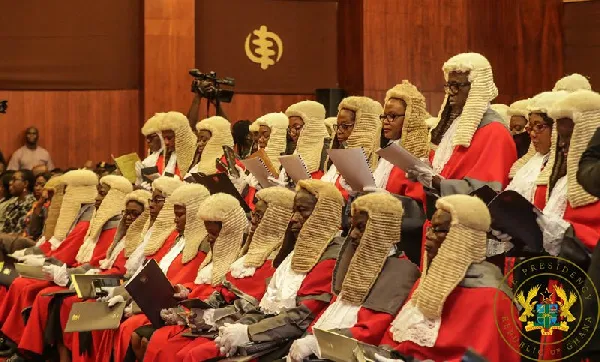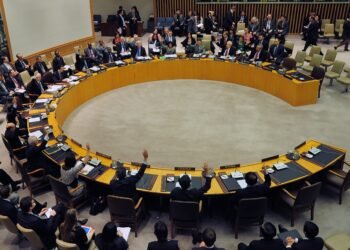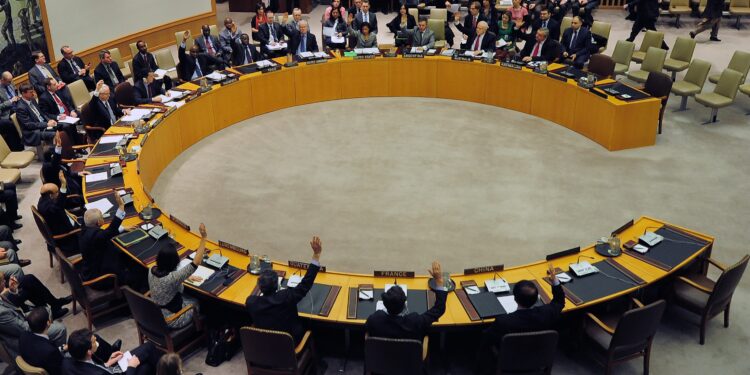As Ghana debates the controversial nomination of seven additional Supreme Court justices, legal expert Prof. Stephen Kwaku Asare has issued a blistering critique of what he sees as a deeply flawed and politically motivated expansion of the apex court.
His concerns, he insisted, are not personal or partisan but grounded in a fundamental defense of judicial independence.
Ghana’s Supreme Court presently comprises twelve justices. If President Mahama’s seven nominees receive approval, the bench would balloon to nineteen—a size Prof. Asare deems excessive and troubling, warning that such a court would be “too large” for effective judicial function.
“The U.S. Supreme Court has nine justices; South Africa’s Constitutional Court has eleven; Kenya’s Supreme Court has seven. A bench of nineteen raises serious concerns about judicial effectiveness. Larger panels struggle with:Coordination and timely deliberation; Consensus building; Coherent judgments; Panel manipulation, and Individual judicial accountability.”
Prof. Stephen Kwaku Asare
These logistical and operational drawbacks, he added, would likely lead to fragmented opinions, decision delays, and further erosion of clarity in the Court’s rulings. All this comes at a time when public trust in the judiciary is already worryingly low.
Midway through his critique, Prof. Asare raised a more immediate and practical concern: logistical and budgetary capacity.
Ghana’s judicial infrastructure is already stretched thin, and the Supreme Court, like many other courts, lacks adequate chambers, clerks, and modern equipment. “Across the country, many judges lack basic research tools and technological support. Courtrooms suffer from inadequate infrastructure.”

He questioned whether Parliament has even allocated funds for this sudden expansion.
He firmly argued that expanding the Supreme Court cannot be justified when many judges across the country continue to work under severely inadequate conditions.
Rather than enlarging the bench, Prof. Asare advocated channeling resources into strengthening judicial infrastructure, training staff, streamlining case management through automation, and modernizing court systems—measures he believes would more effectively improve access to justice.
Supreme Court Appointments Need To Rise Above Politics
Moreover, Prof. Stephen Asare cautioned that the expansion of the apex court signals a troubling trend of politicizing judicial appointments.
While it may be seen as an attempt to restore ideological balance, he emphasized that using bench appointments as a corrective measure—even when procedurally lawful—undermines constitutional integrity and further entangles the judiciary in partisan battles.

“It continues a dangerous practice: the use of judicial appointments as a form of political correction, turning the apex court into a battleground for factional interest rather than a beacon of legal stability.”
Prof. Stephen Kwaku Asare
This, Prof. Asare stressed, threatens not only judicial independence but also the credibility and effectiveness of the entire judicial system.
His criticism also questions the Chief Justice’s justification for the expansion. The claim that the bench needs to grow to reduce the case backlog is, according to him, a red herring.
The real issue, he argued, lies in poor case management, not in the number of judges.
Compounding these concerns is the timing of the nominations.

The announcement comes while the Chief Justice is under investigation—a move that Prof. Asare indicated taints the process with “perceptions of impropriety” and further undermines both the nominations and the institutional integrity of the judiciary.
He sees the expansion as a missed opportunity for meaningful reform. Rather than engaging in symbolic actions that risk deepening partisanship, Ghana needs bold initiatives that truly enhance judicial independence and transparency.
“We do not need a bloated bench. We need a credible, well-resourced, and independent SC. GOGO calls for restraint, fidelity to constitutional procedures, and a renewed focus on real reform—not symbolic expansion.”
Prof. Stephen Kwaku Asare
In his final remarks, Prof. Asare firmly asserted that the future of the judiciary must not be compromised by political expediency.
The country deserves a judicial system that upholds the constitution, serves its people, and remains beyond the reach of partisan interests. “The integrity of our judiciary must not be sacrificed on the altar of political expediency or damage control.”
In his view, ensuring judicial independence must be the cornerstone of any decision involving the Supreme Court.
READ ALSO: Ramaphosa Orders Probe Into Apartheid Case Delays




















